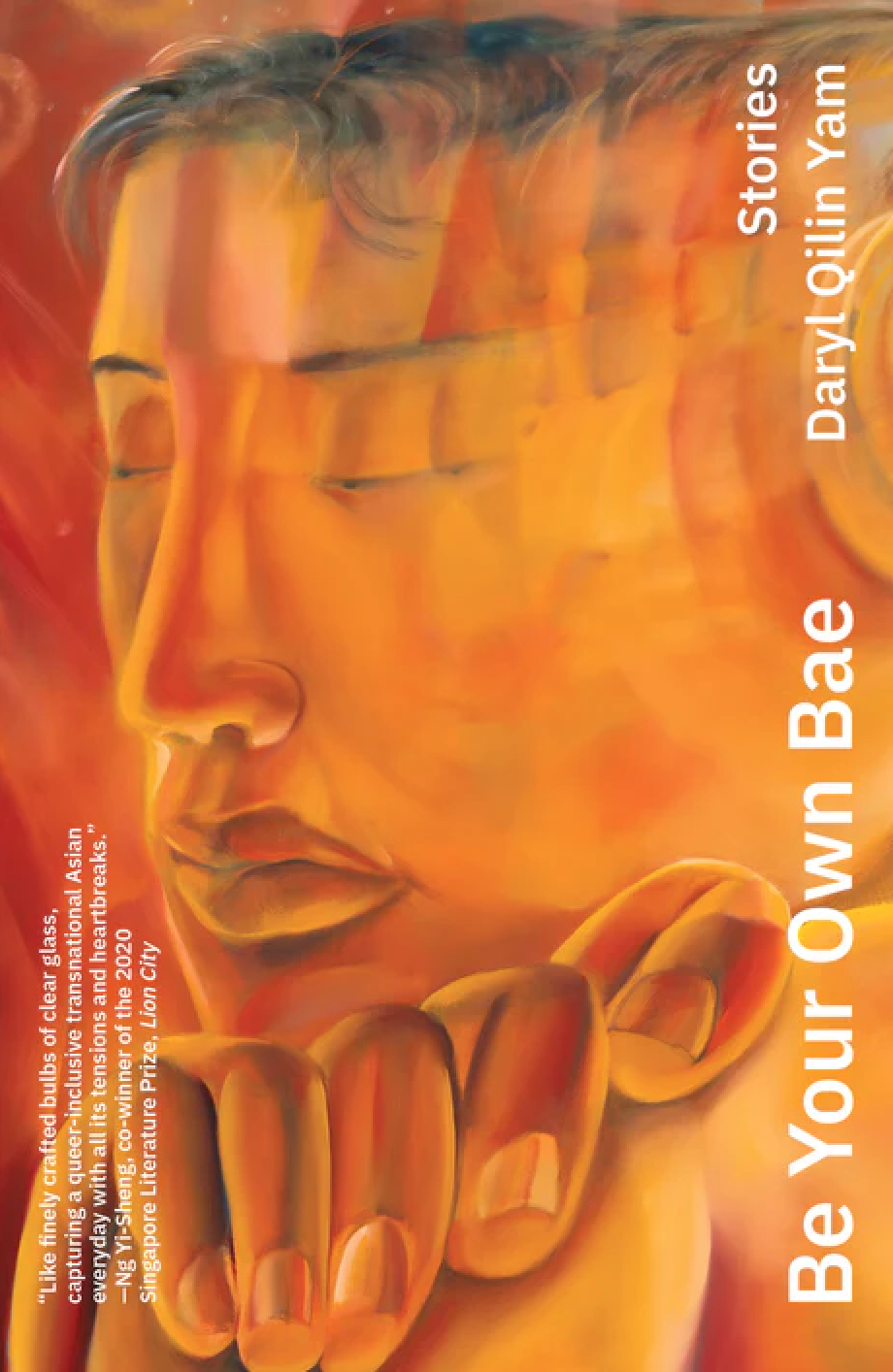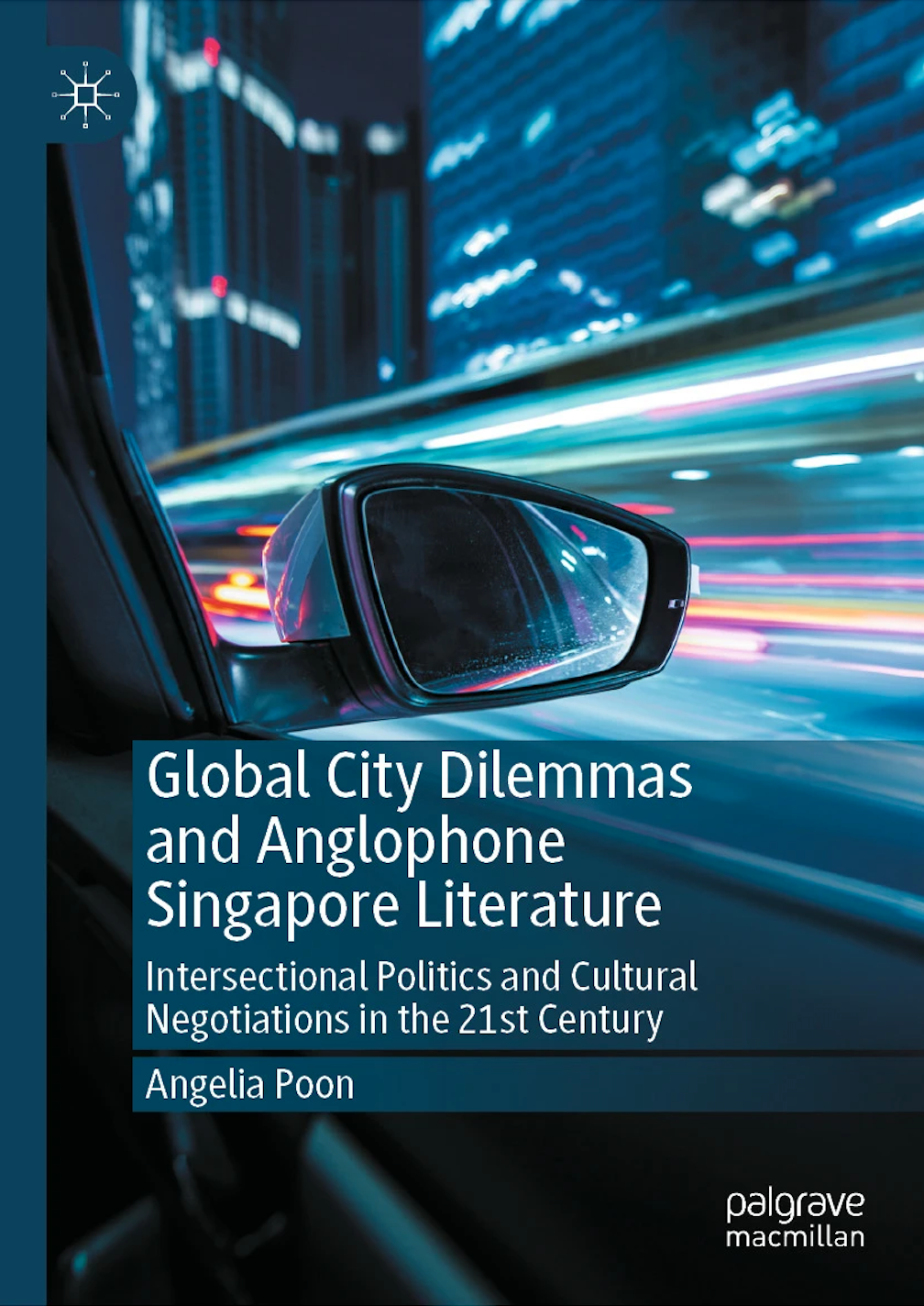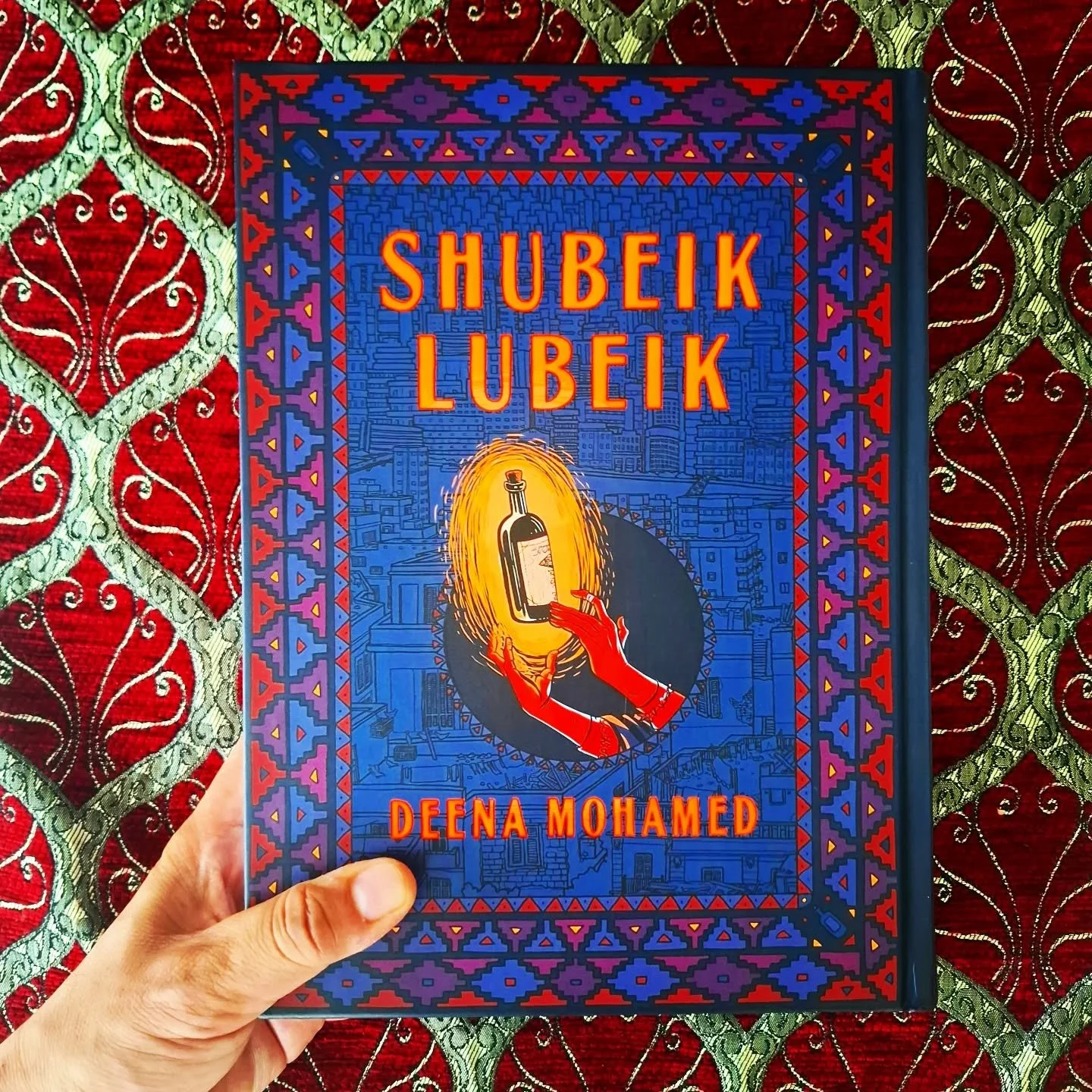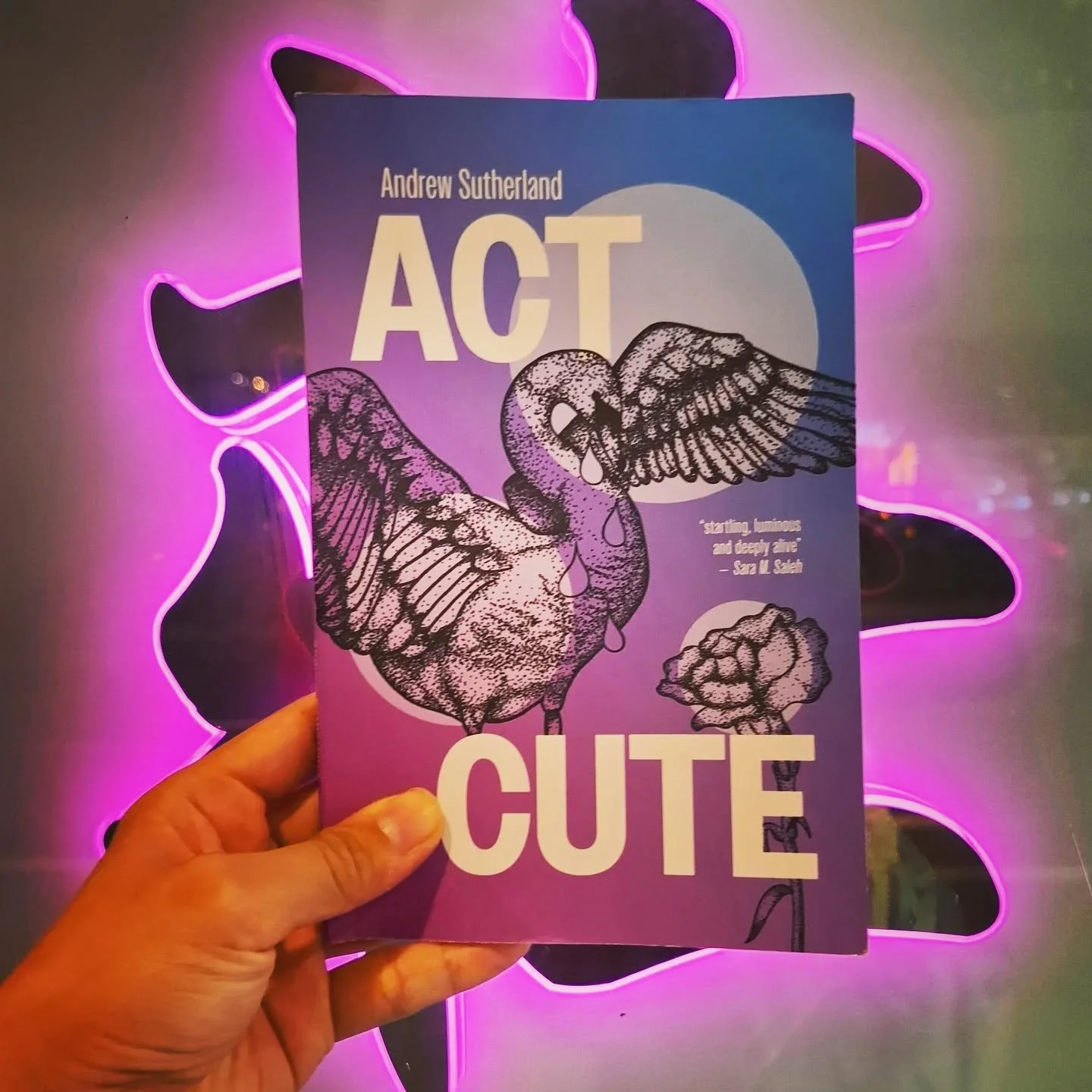#YISHREADS March 2024
By Ng Yi-Sheng / @yishkabob
This month’s column is dedicated to global speculative fiction, for two tantalizingly timely reasons.
Reason #1: I’m currently teaching Singapore’s first ever university-level spec fic writing class, and I’m bloody proud of it. It’s a Yale-NUS course, under their splendid Creative Writing Program, and though I’m telling my kids about the Euro-Americentric works that define the genre, I’m also assigning them loads of readings from the Global South, reflecting our geographical rootedness in Southeast Asia and the internationalised literary scene of the 21st century.
Reason #2: there’s been major drama in the SFF world. Turns out the 2023 Hugo Awards, held last year at the Chengdu Worldcon, were massively compromised. You can read the details at Vulture,[i] but the big news is that the organisers pre-emptively kicked candidates off the voting list, fearing they’d incur the wrath of Chinese government. Folks are outraged, saying the scandal’s destroyed the integrity of the spec fic world’s biggest prize.
What I’m worried about, however, is that this’ll be remembered not as a failure of Western administrators but of Chinese SFF itself. Never mind that none of the evidence shows Chinese authorities demanding changes; never mind that it was Chinese diasporic authors like Xiran Jay Zhao and RF Kuang who were removed from lists; never mind that the other great injustice was the unilateral deletion of votes by Chinese fans.
Will the takeaway be that you can’t do an international SFF convention anywhere but in the First World? Worldcon’s been held all over North America and Western Europe, with a couple of editions in Australia, New Zealand and Japan, but aside from this, nowhere else in Asia, and never before in Eastern Europe, Latin America or Africa.
In short, is the global SFF scene going to become a little less global? Gotta fight that however I can.
Sinopticon: A Celebration of Chinese Science Fiction
Translated and edited by Xueting Christine Ni
Solaris, 2021
Bought this after meeting the editor at WorldCon! This anthology features thirteen short stories by acclaimed Chinese sci-fi authors, much like Ken Liu's Invisible Planets… but with a subtle thematic difference.
Rather than introducing folks to the genre of Chinese SF, it feels like Ni's consciously trying to broaden our understanding of it, featuring a majority of women authors (in her intro, she admits that she considered making this an all-female lineup!), showing us the cracks that exist between cultures and genres, even displaying the limits of translation, keeping plenty of original Chinese words in pinyin with explanatory footnotes (e.g. cooking terms in Anna Wu's "Meisje met de Parel"), providing afternotes where she takes care to explain decisions she made in translation.
I've been going through a space-opera phase in my own writing, so naturally I find myself loving epic pieces here like Han Song's "Tombs of the Universe" and Jiang Bo's "Starship: Library". Also rather delighted by A Que's "Flower on the Other Shore": a Chinese take on the zombie apocalypse genre that’s very genre-savvy and fourth-wall-breaky. (The author appears in the story as a zombie himself!)
But I find I'm also fascinated by things I'm not 100% into, e.g. the love-triangle sentimentality of Regina Kanyu Wang's "The Tale of Moon City" (I too would enjoy being courted by a handsome, brilliant scientist from a complementary binary planet); the male gaze and postcolonial hangups in Wang Jinkang's "The Return of Adam" (so much dwelling on Chinese tradition being incompatible with neural enhancement, embodied by a horny blonde therapist who keeps taking her clothes off); the wide-eyed patriotism of Zhao Haihong's "Rendezvous: 1937" (a Chinese time-traveller goes back to World War Two Nanjing to collect evidence; a Japanese time-traveller goes back to stop her).
Right now there's a whole movement to reclaim sci-fi as literary, but it's worth it to also embrace the fact that it's also commercial literature, with all the schlockiness and cringe the term implies. And it feels like I'm getting a more complete vision of the Chinese scene when I see these tropes, with Ni historicising them ("The Return of Adam" dates from 1993, when the author was already middle-aged) and explaining their relevance.
Oh, and I hear Ni's publishing a follow-up in September: Sinophagia: A Celebration of Chinese Horror! Can't wait.
The Double Death of Quincas Water-Bray, by Jorge Amado
Translated by Gregory Rabassa
Penguin Classics, 2012
I’ve been raiding the Yale-NUS Library for Latin American classic literature, and this one's cool AF. From the same author who gave us Dona Flor and Her Two Husbands, this 1959 magical realist novella narrates the strange fate of a Bahía man named Joaquim Soares da Cunha who suddenly calls his wife and grown-up daughter vipers, then abandons his middle-class life to become the hard-drinking, hard-gambling tramp Quincas Water-Bray (so nicknamed cos of his bray of horrified dismay upon discovering that a bottle of his beloved cahaça, or sugarcane liquor, was actually water).
When he suddenly dies in bed, his uppity family breathes a sigh of relief at the respite from humiliation, then gives his body an expensive new set of clothes and shoes and sits in vigil at the coffin to make sure his lowlife friends don't turn up—though his daughter Vanda shrinks at the fact the body keeps grinning ear to ear and insulting everyone.
Then his friends do show up: four card-dealing, capoeira-fighting, frog-hunting semi-employed drunkards, Black and white and mulatto. And when his family's guard is down Quincas comes back to life, drinking cahaça with them, accompanying them for a night on the town, whereupon all his mourning compadres spring back to life, the sex workers open their doors to customers again, and the night is spent in barfights and debauchery before a final bowl of stingray moqueca on the bay before he plunges into the sea for a final voyage.
It's one of those Rabelaisian celebrations of the senses, an up-yours to genteel European values in favour of the glorious working-class multi-ethnic chaos that the rest of the world loves Brazil for. And it's instructive to read the intro and learn that Amado was in fact a politician with the Communist Party—this is class revolution at its most delicious.
But there's also another way to read the tale: a nightmarish realist vision in which Vanda is only suffering from psychosis when she thinks she hears her dad's undead words; where, in spite of the Lord's Prayer and the candomblé drumming, Quincas' body remains a corpse, dragged into the streets and dumped into the sea by his friends (who actually notice, in text, that he's regurgitating most of the cahaça they pour into his mouth), with his mistress Quitéria Goggle-Eye practising necrophilia (she complains that he's fallen asleep in the middle of coitus).
And yet, in a way, that doesn't matter. Amado's chosen deliberately to portray the da Cunha family as loveless misers, more upset that they can't get a refund on the coffin than the desecration of their family member's body (after all, he'd died first by walking out on them). When all’s said and done, perversion's still preferable to bourgeois puritanism.
The Great God Pan and Other Horror Stories, by Arthur Machen
Oxford University Press, 2018
You could say I taught this before I read this! Prepping for my class on Horror and the Gothic, I discovered the Weird Fiction movement, epitomised by HP Lovecraft, but generally understood to have emerged in the late 1800s with this guy: a Welsh mystic and contemporary of HG Wells (they were published in the same magazines) who never achieved a comparable level of mainstream fame.
What's odd about thinking of Machen in the same terms of Lovecraft is—and I feel I’m being inexact here—his relative provincialism. He similarly imagines that the world may be secretly ruled by horrific, tentacle-limbed monstrosities and deities with aspects beyond human comprehension, but he doesn't envision them in space or at the bottom of the ocean or even emerging in distant colonies—he sees them right in the city of London or the countryside, with their public face in the form of classical archaeology (e.g. artefacts from Roman Britain) and folklore of fairies and witches (several tales of people swallowed up or possessed in pagan pits).
And so many classic Victorian tropes—worried governesses, idle gentlemen in cafes who try to rationally solve mysteries more out of boredom than out of a sense of justice, and this constant diversion of the gaze whenever something too horrible appears—in The Great God Pan, we never actually see Helen Vaughan, the result of a mad act of neurosurgery designed to allow people to see the old gods; we're told that she performs mad bacchanalian acts that make her gentlemen callers unalive themselves, but there's not a hint of what they are (though the 19th century authorities were quick to ban the book for obscenity anyway).
For folks like us who grew up with horror fandoms, ancient alien conspiracy theories and online terrorist beheadings, it's all a little absurd. Hell, speaking as a person who worships "pagan" gods, it's laughable how easily he's squicked by the idea that his race used to commune with pre-Christian belief. Hence my chosen backdrop, a reference to the tentacle, that iconic emblem of the Weird Fiction movement. (It's there in his novella The Three Impostors, emerging out of a changeling boy, whom everyone assumes is just intellectually disabled, while under hypnosis by a mad Atlantis-hunting classicist. Oh, and all it does is move a bust of William Pitt from one shelf to another.)
Honestly, these stories are hard to read, with so little action at their beginnings, so I'm not sure I'd recommend them to folks for anything other than their historical value. But historical value they do have: this is the guy who, in his short story “The Bowmen”, invented the legend of the Angels of Mons, i.e. that the knights of the Battle of Agincourt appeared at a battle in World War One... though the retellings I've seen leave out the terror-stricken faces of the German corpses, which gave doctors the impression they died from poison gas.
And yes, I suppose their structural value is also fascinating, with all these nesting-doll stories in the form of letters and manuscripts, retellings, labyrinthine enigmas. But most of all the revelation that the Victorians really did conceive that monstrosities lay at the heart of their civilisation, not at its borders.
Multispecies Cities: Solarpunk Urban Futures
Edited by Christoph Rupprecht, Deborah Cleland, Norie Tamura, Rajat Chaudhuri and Sarena Ulibarri
World Weaver Press, 2021
I’ve heard buzz about this book for a while now, but only got into it while researching for my class on cyberpunk and its descendants. (There aren’t really as many canonical texts for solarpunk as for cyberpunk and steampunk, y’know?)
This anthology’s particularly relevant for a Singaporean reader, since the editors made a conscious effort to get stories from across the Asia-Pacific. The authors include people I met and befriended via Worldcon: Taiyo Fujii with "Becoming Martians", which rejects the "greening" of the red planet in favour of assimilation through genetic manipulation of humanity (thus a rejection of settler colonialism); also Shweta Taneja's "The Songs That Humanity Lost Reluctantly to Dolphins", which imagines an apocalyptic collapse of human civilisation when cetaceans start controlling our kids. And a couple of Singaporeans too: Joyce Chng's "It Is the Year 2115" (self-awarely playing with the trope of Singapore under a bubble) and Timothy Yam's "Untamed" (about a delinquent girl's stubborn dedication to an HDB rooftop garden—he’s not well-known in the scene, but this was very good).
But here's the thing. The cover projects this solarpunk dream that nature and technological progress (as we know it) can co-exist, yet the stories categorically reject that. Maybe it's the need for conflict in a tale, but there’s a frequent assumption that something has to change fundamentally in our social structures for harmony to happen, which means these are often stories of disaster (e.g. Eliza Victoria's "Down the River", in which a Philippine hotel's touristy greenwashing comes to naught against the curse of the river goddess) or war (e.g. DK Mok's "The Birdsong Fossil", which closes the book in a rather wonderful imagining of robots teaching cloned animals how to carry out their non-instinctual behaviours).
And TBH, a lot of these stories just weren't doing it for me! Despite the shoot-em-ups with exuberant science-fair kids and sentient octopi, I found myself speed-scrolling, impatient for a tale to draw me in. Solarpunk's hard to do, as a friend said—it's so easy for utopia to be boring. (Not impossible, though: Natsumi Tanaka's "A Life with Cibi" is a brief and delightful conjecture on how we'd feel if we cultivated the ideal sentient organism that wanted to be eaten.)
The Disappearance of Patrick Zhou, by Ally Chua
Epigram Books, 2023
I’m cheating a little, including this brand-new Singaporean novel in a spec fic lineup. While it's been marketed with supernatural horror vibes—which is entirely true to the neo-Gothic spirit of the work—it'd be way more accurate to call it an anti-Crazy Rich Asians.
Like Kevin Kwan's famous series, this too is a tale of a wealthy family dynasty in Asia (specifically, Malaysian oil palm and hotel tycoons), told from the viewpoint of a grandchild based abroad (Layla Zhou, a Singapore-based journalist), set in a grand mansion with a beloved grandmother on her deathbed. It too explores the luxuries and privileges of being of this set: the connections with international oligarchs, politicians and royalty, studies at Raffles Institution and Cambridge University, sex and romance with people who remain strikingly beautiful well into their middle-age. (The cast's also pretty racially diverse: these rich kids include Malays and Indians—even Layla herself is Eurasian on her mum's side.)
But while CRA revels in the feminine glamour, passion and jealousies of this class, this novel leans into the dark side of how one actually accumulates and holds on to wealth in this region. The environmental impact and labour exploitation involved in industry is fully exposed; also the violence and cunning necessary to outmanoeuvre competition—and while this is comparatively masculine, it's revealed to be a system that women participate in as well.
The work also falls into the genre of detective fiction, with Layla using her journalistic skills to investigate the question of what happened to her uncle Patrick, the golden-boy successor to the business, compared to whom her dad and her aunt appear as pale shadows. As she disturbs the ghosts of the past, they overlap with the ghost stories he used to tell her—this is the tropical Gothic of rainforests and decaying colonial houses, where pontianaks and orang minyaks may or may not lurk. Since this came out just last year, I can't bring myself to spoil the bloody revelations that come, or the way this changes Layla forever.
On the downside, however, the prose doesn't always glitter (would that distract from the content?) and the critique of capitalism still tends towards a vision that it can be redeemed as long as the right people are in charge of the corporations. Nevertheless, this is really rather good. Read it… if you've got the nerve!
Endnotes
[i] Zoe Guy, “The Hugo Awards Scandal Is a Mess”, Vulture, 16 February 2024. https://www.vulture.com/article/hugo-awards-china-censorship-controversy.html
Ng Yi-Sheng (he/him) is a Singaporean writer, researcher and LGBT+ activist. His books include the short-story collection Lion City and the poetry collection last boy (both winners of the Singapore Literature Prize), the non-fiction work SQ21: Singapore Queers in the 21st Century, the spoken word collection Loud Poems for a Very Obliging Audience, and the performance lecture compilation Black Waters, Pink Sands. He recently edited A Mosque in the Jungle: Classic Ghost Stories by Othman Wok and EXHALE: an Anthology of Queer Singapore Voices. Check out his website at ngyisheng.com.
If you’ve enjoyed reading this article, please consider making a donation. Your donation goes towards paying our contributors and a modest stipend to our editors. Singapore Unbound is powered by volunteers, and we depend on individual supporters. To maintain our independence, we do not seek or accept direct funding from any government.














In Taiwan Travelogue, ‘twinned souls… are at once lost, but also found, in translation.’ A review by Eunice Lim.